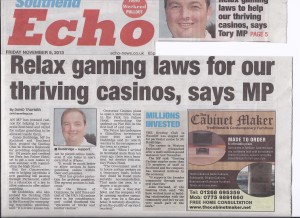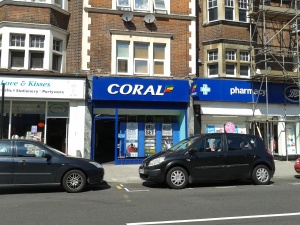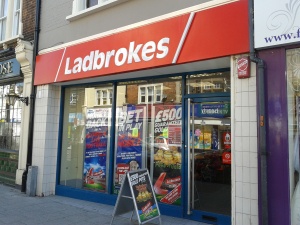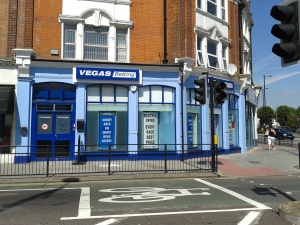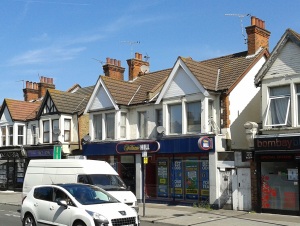Here is the motion I put to Full Council last Thursday:
This council notes:
1. The prevalence of Fixed Odds Betting Terminals (FOBTs) in betting shops, often referred to in the media as “the crack cocaine of gambling”.
2. That, unlike fruit machines in pubs, bingo halls and amusement arcades where cash stakes are limited to £2, gamblers can bet with cash or via a debit card up to £100 every 20 seconds on FOBTs, more than four times as fast as the rate of play in casinos.
3. That in 2012, over £1.5bn was lost on FOBTs across the UK. More profit was made from FOBTs than from the National Lottery, when according to the most recent British Gambling Prevalence Survey, 56% of the population play the Lottery, but just 4% play FOBTs.
4. Empirical evidence that suggests FOBTs are the most addictive form of gambling.
5. Research carried out by Geofutures, which found there to be four times as many betting shops in areas of high unemployment than in areas of low unemployment.
6. Research carried out by 2CV in Newham, which found that the average bet per spin on FOBTs is £17, and the average amount of cash inserted into the machine is £55 per session, with one in five putting in over £100 a time.
7. Nationally, more than 80% of turnover in betting shops and more than half of profits are derived from FOBTs. Less than 20% of stakes in betting shops are over the counter.
8. A recent economic analysis undertaken by Landman Economics, commissioned by the Campaign for Fairer Gambling, which assessed the impact of FOBTs on local economies and across the wider economy. The report concluded that every £1bn spent on FOBTs produces a net reduction of 13,000 jobs, compared to if spent in the wider consumer economy. The projected doubling of revenue from FOBTs by 2023 could cost a further 23,000 jobs across the economy.
9. Concern that the Government has not addressed the issues caused by FOBTs, and the announcement made by Maria Miller MP, Secretary of State for Culture Media and Sport, on 10th October 2013 in response to the Triennial Review of gaming machine stakes and prizes, where the stakes on FOBTs were unchanged.
10. The position in the Republic of Ireland where the Government has introduced legislation to outlaw FOBTs in betting shops.
This council believes that the increase in FOBTs is causing significant problems and believes that the Government should either use the existing legislative framework, or introduce legislation to outlaw B2 casino games in betting shops.
At the very least, local authorities should be given the powers to protect the local amenity and wellbeing of communities by (1) stopping the proliferation of betting shops and (2) reducing the maximum stakes and slowing down the speed of play.
This council therefore requests:
1. The Chief Executive writes to the Secretary of state for Culture, Media and Sport to outline the terms of this motion and demand urgent action against FOBTs by the Government.
2. The use of the Sustainable Communities Act as a means to reduce the maximum stake on Fixed Odds Betting Terminals to £2 per spin is explored.
This was seconded by Cllr Anne Jones (Labour, Kursaal) and will be discussed at Cabinet.
